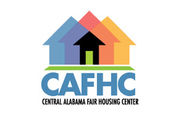Sexual harassment is not tolerated on any level when it comes to Fair Housing, but knowing your rights and what to look out for is imperative to protecting yourself and others.
Sexual harassment in housing is a form of discrimination that’s deemed illegal by the Fair Housing Act. It’s also two-pronged, in the sense that it covers individuals in two different ways:
- Quid Pro Quo Sexual Harassment: Protects individuals seeking housing from all unwelcome sexual advances, a request for sexual favors, or any other type of sexual conduct as a condition of obtaining, maintaining, using, or enjoying housing or housing-related services. Quid Pro Quo sexual harassment in housing can be defined as a “this for that” request, such as, “I will run your rental application so long as you submit nude photos along with the paperwork”.
- Hostile Environment Sexual Harassment: Occurs when a landlord, housing provider, or their employee subjects a person to unwelcome sexual conduct as part of the sale, rental, availability, or terms, conditions, or privileges of housing or housing-related services. Hostile Environment sexual harassment likely results in an environment of intimidation, humiliation, hostility, offense, or an arrangement that is otherwise undesirable. An example of Hostile Environment sexual harassment is when a landlord makes unwelcome, severe, or pervasive, lewd comments about a tenant’s body, appearance, features, etc.
It’s also important to note that it’s illegal for a housing provider to retaliate against someone who files a complaint or participates in the investigation of a complaint regarding harassment, or who identifies as a victim/survivor of sexual harassment. That means that it’s unlawful for a landlord to evict a tenant for complaining about sexual harassment. It also means that a landlord cannot enact something such as a rent increase for an applicant who identifies as being impacted by sexual harassment, whether previously or presently.
The Fair Housing Act and additional federal laws prohibit sexual harassment related to any activities regarding access to housing and all housing-related activities. It’s important to know your rights and what ‘sexual harassment’ entails to keep yourself protected and covered by your rights.
What is Sexual Harassment?
As it relates to fair housing and your legal rights, sexual harassment includes any type of unwanted, unwelcome, or unwarranted sexual advance, request for sexual favors, or other verbal or physical conduct of a sexual nature that originates from a housing provider, landlord, housing management company, real estate agent, loan officer, housing affiliate, maintenance person, or so on.
It’s important to understand that sexual harassment can occur to any person – male, female, non-binary, gay, straight, black, white, young, old, etc. – and that an act of sexual harassment is committed by someone of the same sex or opposite sex. Specific examples of sexual harassment in housing include, but are not limited to, the following:
- A landlord evicting a tenant because they refuse to perform a sexual act
- Requesting rent to be paid in sexual favors instead of money.
- A real estate agent touching your body or making unwanted, lewd, and otherwise sexual comments about your appearance.
- A housing provider learning that one of their tenants is being sexually harassed by an employee or another tenant but refusing to help
- A maintenance manager sending you sexually suggestive text messages
Reporting Sexual Harassment in Housing
First and foremost, it’s important to realize that a victim of sexual harassment is not required to follow the particular sexual harassment reporting procedures of the property owner or manager (if any are explicitly in place) to have his or her sexual harassment claim addressed. This holds particularly important for individuals who identify issues involving their property owner or manager. If you feel you would be safe doing so, you have every right to tell the harasser to stop, AND you CAN make a formal complaint to your housing provider, as long as that person is different from the harasser.
If you are being sexually harassed, you are able to file a complaint directly with the U.S. Department of Housing and Urban Development. You might also visit the CAFHC website to view our legal assistance services. We also provide countless Fair Housing Resources, including printable materials and local Fair Housing assistance.
When you plan to make a formal complaint, it’s best to be armed with facts. To the best of your ability, write down the names, addresses, and phone numbers of individuals, lenders, agents, properties, companies, and witnesses involved in the sexual harassment, as well as any person who might have had a similar experience with the same individual or company.
Be sure to keep a record of dates, times, and conversations relating to the incident(s). Keep copies of any communication (letters, emails, text messages, phone logs) that have transpired throughout the course of the harassment. The more information you have on hand, the better.
Last but not least, understand that you are not alone. You are legally protected and it is your right to not only fair housing but fair treatment. It is the goal of the Central Alabama Fair Housing Center (CAFHC) to ensure equal housing opportunity for all people living in central Alabama – those who are/have experienced sexual harassment– but also regardless of race, color, national origin, religion, gender, or family status.

